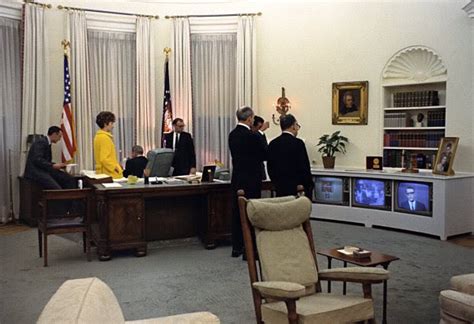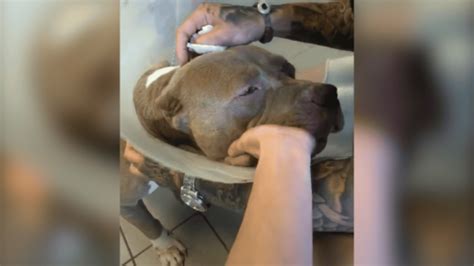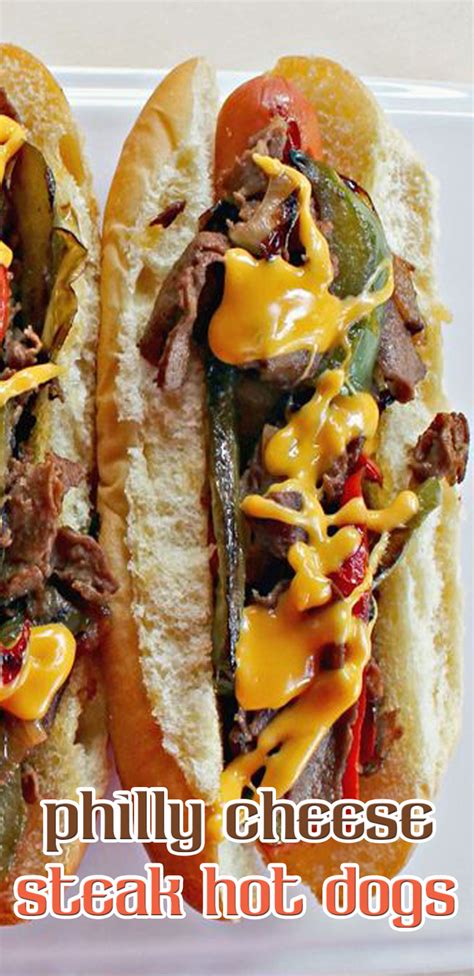
Lyndon B. Johnson’s Oval Office desk, a symbol of presidential power, held a surprising secret: a button not for national security alerts, but for summoning his favorite beverage, Fresca. The discovery, highlighted in recent discussions about presidential quirks, reveals a lighter side to the 36th President and offers a glimpse into the everyday routines of life in the White House.
Lyndon B. Johnson, a towering figure in American political history, was known for his larger-than-life personality and his penchant for control, traits that extended even to his beverage choices. The revelation that he had a button specifically installed to deliver Fresca on demand has sparked renewed interest in the details of his presidency, offering a humanizing anecdote amidst the weighty decisions and historical events that defined his time in office.
The story resurfaced following discussions on social media and in various historical forums, prompting a deeper look into Johnson’s well-documented fondness for the citrus-flavored soft drink. According to multiple sources and historical accounts, LBJ was rarely seen without a Fresca, and he ensured it was readily available wherever he went, including, most notably, the Oval Office.
“He loved Fresca. He always had a Fresca at hand,” recalls a former White House staffer. This seemingly small detail paints a vivid picture of Johnson’s personality, illustrating how he managed to maintain a sense of normalcy amidst the immense pressures of the presidency. The Fresca button, therefore, becomes more than just a quirky anecdote; it represents a president’s attempt to retain a small piece of personal comfort and control within the highly structured environment of the White House.
The existence of the Fresca button reflects a broader pattern of Johnson’s meticulous attention to detail and his desire to create a comfortable and efficient working environment. He was known for being demanding of his staff, expecting them to anticipate his needs and cater to his preferences. The Fresca button can be seen as an extension of this management style, ensuring that one of his personal preferences was always immediately met.
The fascination with Johnson’s Fresca button also highlights the public’s enduring interest in the personal lives of presidents. These small, humanizing details provide a connection to figures who often seem larger than life, reminding us that even the most powerful individuals have their own routines, preferences, and quirks. Such anecdotes offer a break from the often-serious narratives surrounding politics and policy, allowing for a more relatable and engaging understanding of history.
The story of the Fresca button also provides an opportunity to reflect on the changing times and the evolution of presidential habits. While modern presidents undoubtedly have their own favorite foods and beverages, the idea of a dedicated button for a specific soft drink seems almost quaint in today’s highly scrutinized and technologically advanced White House.
Ultimately, the tale of Lyndon B. Johnson’s Fresca button serves as a reminder that history is not just about grand events and policy decisions, but also about the small, everyday details that shape our understanding of the people who lead us. It’s a lighthearted anecdote that offers a glimpse into the personality of a complex and influential figure, inviting us to consider the human side of the presidency and the enduring power of personal preferences. The button symbolizes Johnson’s unique approach to leadership, characterized by his demand for control and his desire to create a comfortable environment, even within the confines of the Oval Office.
In-Depth Analysis of LBJ’s Presidency and Personality
Lyndon B. Johnson’s presidency was a period of intense social and political change in the United States. Taking office in the wake of President John F. Kennedy’s assassination, Johnson inherited a nation grappling with civil rights, Cold War tensions, and growing social unrest. His leadership style was characterized by a combination of political acumen, relentless determination, and a deep understanding of the levers of power.
Johnson’s domestic agenda, known as the “Great Society,” aimed to address poverty, inequality, and social injustice through a series of ambitious programs. These initiatives included Medicare and Medicaid, which provided health insurance to the elderly and low-income individuals, respectively; the Elementary and Secondary Education Act, which provided federal funding to schools; and the Voting Rights Act of 1965, which outlawed discriminatory voting practices.
Despite his significant achievements in domestic policy, Johnson’s presidency was largely defined by the Vietnam War. The conflict escalated dramatically under his leadership, leading to increased American involvement and growing anti-war sentiment at home. The war deeply divided the nation and overshadowed many of Johnson’s accomplishments, ultimately contributing to his decision not to seek re-election in 1968.
Understanding Johnson’s personality is crucial to understanding his presidency. He was a complex and often contradictory figure, capable of both great empathy and ruthless pragmatism. He had a deep-seated desire to improve the lives of ordinary Americans, particularly those who had been marginalized and disadvantaged. At the same time, he was a master of political maneuvering, willing to use any means necessary to achieve his goals.
Johnson’s personal quirks, such as his fondness for Fresca, offer a glimpse into his character. These seemingly minor details reveal a man who, despite the immense pressures of the presidency, sought to maintain a sense of normalcy and control. His demand for Fresca on demand, while perhaps unusual, reflects his attention to detail and his desire to create a comfortable and efficient working environment.
The Historical Context of Fresca
Fresca, introduced by The Coca-Cola Company in 1966, quickly gained popularity as a sugar-free citrus soft drink. Its appeal stemmed from its refreshing taste and its association with a healthier lifestyle, aligning with the growing interest in diet beverages during the mid-20th century.
The timing of Fresca’s introduction coincided with Johnson’s presidency, making it a readily available and appealing choice for the president. His preference for Fresca may have been influenced by its low-calorie content, as Johnson was known to be conscious of his weight.
Fresca’s cultural significance extends beyond its association with President Johnson. The drink became a staple in many American households and was often marketed towards health-conscious consumers. Its popularity peaked in the 1970s and 1980s, but it remains available today, albeit with a smaller market share compared to other soft drinks. The enduring appeal of Fresca is a testament to its unique flavor and its place in American popular culture.
Presidential Quirks and Personal Preferences: A Historical Perspective
Throughout history, presidents have been known for their unique habits, preferences, and quirks. These personal details often provide insights into their personalities and leadership styles. From Thomas Jefferson’s love of books and architecture to Abraham Lincoln’s penchant for storytelling, presidential quirks have become part of the historical narrative.
John F. Kennedy, for example, was known for his love of sailing and his sophisticated taste in art and literature. Richard Nixon was known for his meticulous attention to detail and his fondness for ketchup on cottage cheese. Ronald Reagan was known for his love of jelly beans and his ability to connect with ordinary Americans.
These presidential quirks, while seemingly trivial, can humanize these figures and make them more relatable to the public. They also offer a glimpse into the personal lives of individuals who often seem larger than life. By examining these details, we can gain a deeper understanding of the people who have led our nation.
The story of Lyndon B. Johnson’s Fresca button fits into this historical context, offering a unique and memorable anecdote about one of America’s most influential presidents. It is a reminder that even the most powerful individuals have their own personal preferences and routines, and that these details can provide valuable insights into their character.
The White House and the Presidential Diet
The White House has always been a place of both immense power and personal routine. Presidents, while making decisions that shape the world, also have their daily meals, favorite snacks, and preferred beverages. The White House kitchen and staff cater to these needs, ensuring that the president is well-fed and comfortable.
The dietary habits of presidents have varied widely throughout history. Some presidents, like Theodore Roosevelt, were known for their hearty appetites and their love of meat. Others, like John Adams, were more health-conscious and preferred lighter fare.
In recent years, there has been increasing attention paid to the health and wellness of presidents. Michelle Obama, for example, launched the “Let’s Move!” campaign to combat childhood obesity and promote healthy eating habits. This initiative highlighted the importance of nutrition and physical activity for all Americans, including the president.
The Fresca button anecdote provides a glimpse into the presidential diet of the past, showcasing a time when personal preferences were readily accommodated. While modern presidents may have more varied and health-conscious diets, the story of LBJ’s Fresca button serves as a reminder of the enduring importance of personal comfort and routine, even in the highest office in the land.
The Lasting Legacy of LBJ
Lyndon B. Johnson’s legacy is complex and multifaceted. He is remembered for his significant achievements in domestic policy, particularly his efforts to combat poverty and promote civil rights. At the same time, he is also remembered for his role in escalating the Vietnam War, a decision that deeply divided the nation and overshadowed many of his accomplishments.
Despite the controversies surrounding his presidency, Johnson’s impact on American society is undeniable. His Great Society programs transformed the social safety net and provided opportunities for millions of Americans. His commitment to civil rights helped to dismantle segregation and advance the cause of racial equality.
Johnson’s legacy continues to be debated and re-evaluated by historians and political analysts. Some argue that his domestic achievements outweigh his foreign policy failures, while others emphasize the lasting damage caused by the Vietnam War. Regardless of one’s perspective, it is clear that Johnson was a transformative figure in American history, whose actions continue to shape our nation today.
The story of the Fresca button, while seemingly minor, offers a unique perspective on Johnson’s personality and leadership style. It is a reminder that even the most complex and influential figures have their own personal preferences and routines, and that these details can provide valuable insights into their character and their place in history. The button encapsulates his desire for control and comfort, reflecting his overall approach to leadership.
In conclusion, the discovery of Lyndon B. Johnson’s Fresca button is more than just a quirky anecdote. It is a reminder of the human side of the presidency and a glimpse into the personality of a complex and influential figure. It invites us to consider the small, everyday details that shape our understanding of the people who lead us, and to appreciate the enduring power of personal preferences. The button serves as a microcosm of Johnson’s presidency, reflecting his ambition, his attention to detail, and his desire to leave a lasting impact on American society.
Frequently Asked Questions (FAQs)
1. What was the significance of the Fresca button on LBJ’s desk?
The Fresca button was a direct line to the White House beverage service, allowing President Johnson to quickly and easily obtain his favorite soft drink. It symbolizes his attention to detail, his desire for control, and his ability to maintain a sense of normalcy amidst the pressures of the presidency. It also highlights a lighter side to his personality, showcasing a personal preference amidst serious political decisions. The button represents his demand for efficiency and comfort, even within the high-stakes environment of the Oval Office.
2. Why did Lyndon B. Johnson like Fresca so much?
While the exact reasons for Johnson’s fondness for Fresca are not definitively known, several factors likely contributed to his preference. Fresca was a relatively new and popular sugar-free citrus soft drink at the time, aligning with the growing interest in diet beverages. It is possible that Johnson appreciated its refreshing taste or its low-calorie content, as he was known to be conscious of his weight. The easy availability of Fresca during his presidency also likely played a role. He ensured Fresca was always on hand, indicating a significant preference that went beyond mere convenience.
3. How does the Fresca button anecdote reflect LBJ’s overall personality and leadership style?
The Fresca button anecdote reflects several key aspects of Johnson’s personality and leadership style. It demonstrates his attention to detail and his meticulous approach to managing his environment. It also reveals his desire for control, ensuring that his personal preferences were always met. Furthermore, it highlights his ability to maintain a sense of normalcy and routine amidst the immense pressures of the presidency. Johnson’s leadership was marked by a hands-on approach and a demanding nature, and the Fresca button is a small but telling example of this.
4. Is it common for presidents to have personal preferences catered to in such a specific way?
While it is common for presidents to have personal preferences catered to by the White House staff, the Fresca button anecdote represents an unusually direct and personalized accommodation. Presidents throughout history have had their favorite foods, beverages, and routines, but the installation of a dedicated button for a specific soft drink is a particularly memorable example. The extent to which presidents’ personal preferences are accommodated can vary depending on their individual personalities, their staff, and the prevailing cultural norms. LBJ’s setup stands out due to its directness and the specificity of the request.
5. How does the story of the Fresca button contribute to our understanding of presidential history?
The story of the Fresca button contributes to our understanding of presidential history by providing a glimpse into the personal lives of presidents and highlighting the human side of these often-larger-than-life figures. It reminds us that presidents are individuals with their own routines, preferences, and quirks, and that these details can offer valuable insights into their character and their leadership style. It also underscores the importance of understanding the historical context in which presidents operate, including the cultural norms and technological advancements of their time. The button serves as a reminder that history is not just about grand events but also about the small, everyday details that shape our understanding of the people who lead us.









